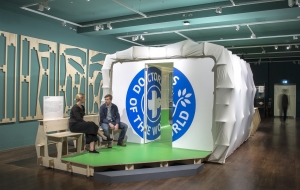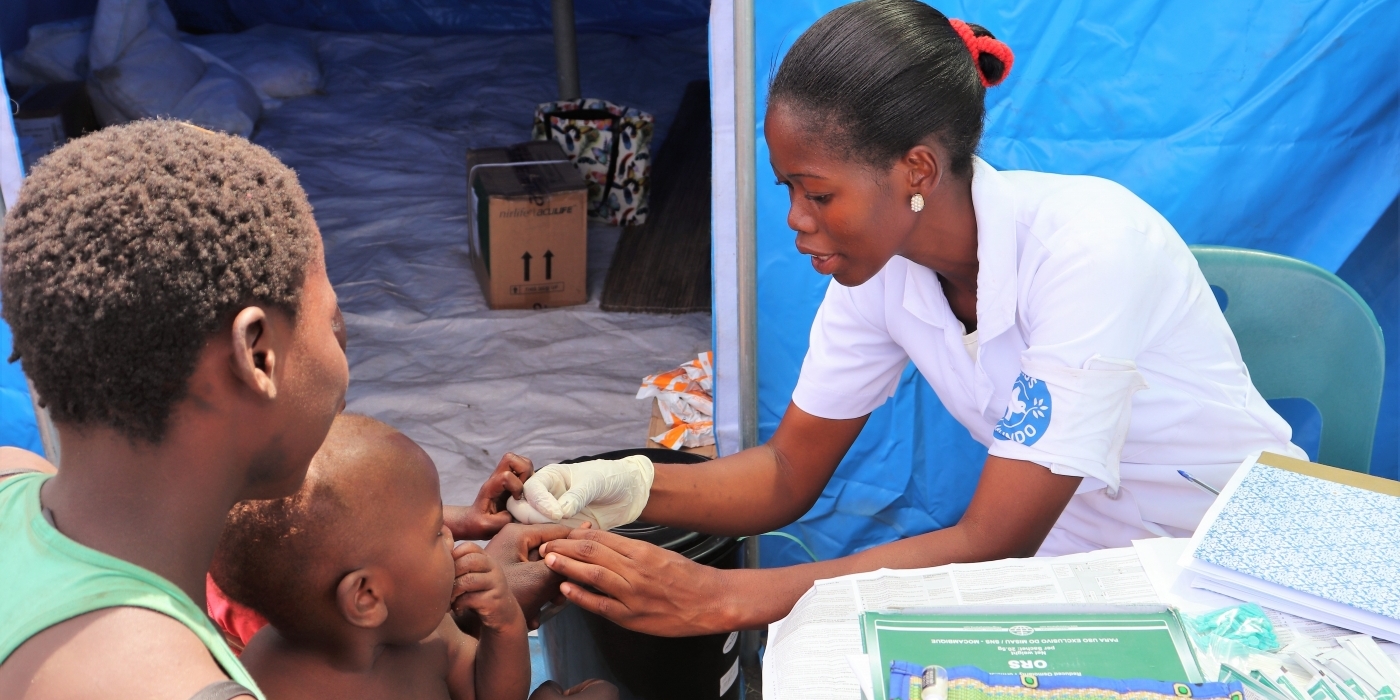Fast Forward: Mozambique in 10 years
Published 7th April 2019
Ellen Waters is the Director of Development at Doctors of the World UK. She is passionate about access to healthcare around the world and spent four years in India working for human rights organisations.
On Thursday 14th March, Cyclone Idai swept Mozambique, leaving behind it a trail of destruction and death. Organisations from all around the world mobilised in just a few hours to get help to the population hit.
Rapid intervention is key to save lives, but there is an often hidden need to provide healthcare for a long time after the disaster, while reconstruction takes place. On World Health Day, I want to bring the focus on the importance of primary and mental health care post-emergency. They will be a key determinant to how Mozambique will be 10 years from now.
Over 120,000 people live in temporary camps today in Mozambique. The sight of rows upon rows of blue tents is now a familiar one, but what we often don’t realise are the health risks associated with living in these conditions.
For the survivors of Cyclone Idai, their health and wellbeing is still not guaranteed. Living in tents in close proximity, in unhygienic settings, with no drinkable water and little access to a doctor, there is a high risk of outbreaks and epidemics. In Mozambique, we are working against the clock to contain a cholera outbreak caused by lack of clean water, and we are increasingly worried about malaria.
Life in camps also creates health risks for the most vulnerable, particularly pregnant women, children, and people with disabilities and chronic illnesses. But this situation also carries a hidden, long term risk: life in camps as well as the trauma and impact on daily or family life after the cyclone, can cause mental health to deteriorate.
During our long term intervention in Nepal after the 2015 earthquake, we worked to improve access to primary healthcare, and to train community health workers to provide frontline counselling. Sita, a community health worker, later told us:
“When the earthquake hit, many lost their houses, their loved ones and lost their properties. In that state, many people were in stress, some even had a psychotic episode. So, I have come here to learn more about counselling and coping mechanism for these issues to help people. If I talked about the situation at the time of earthquake, it was very stressful.”
Displaced persons are among the world’s most vulnerable populations. Access to primary and mental health care in post-disaster situations is fundamental to uplift those who have suffered.
With natural disasters on the rise, and the average length of displacement up to 20 years, the need for long term emergency structures will become more common. Providing a safe area, a comfortable space where to speak with a doctor is the idea behind the Global Clinic. We have created this new medical facility to support people from the moment the disaster strikes to when local structures have been fully rebuilt.
The Global Clinic is a low-cost, easily-assembled, and durable solution that creates a private and safe space for patients and doctors worldwide. It can be built in just 4 hours and can last for decades, providing a solid and sturdy space where patients can see a doctor in a private, higynic, and dignified environment.
A space to receive counselling, open up about one’s mental health and the impact of traumatic experiences during the emergency, but also a point of reference in the community, a physical area where everyone can feel welcome and safe. This is the type of medical spaces we want to provide patients all over the world.

Primary care and mental health support are at the root of wellbeing and health. We need work hand in hand with the affected population and local health personnel to guarantee access to the healthcare for people who suffer, and those who have lost everything. With the Global Clinic, we can ensure patients won’t have to see a doctor in muddy tents, boiling hot huts, and unsuitable shipping containers.
Because healthcare is a right, and everyone should be able to access it with dignity.
